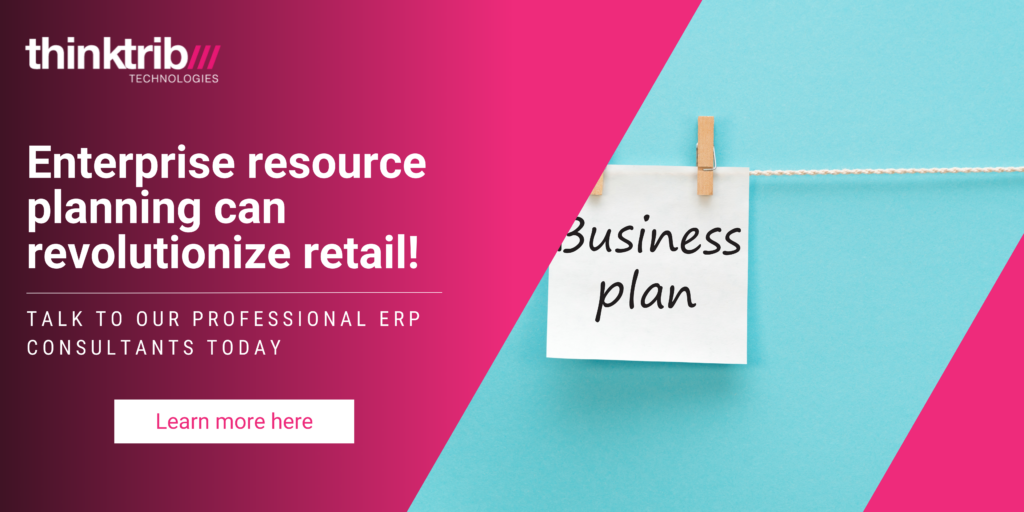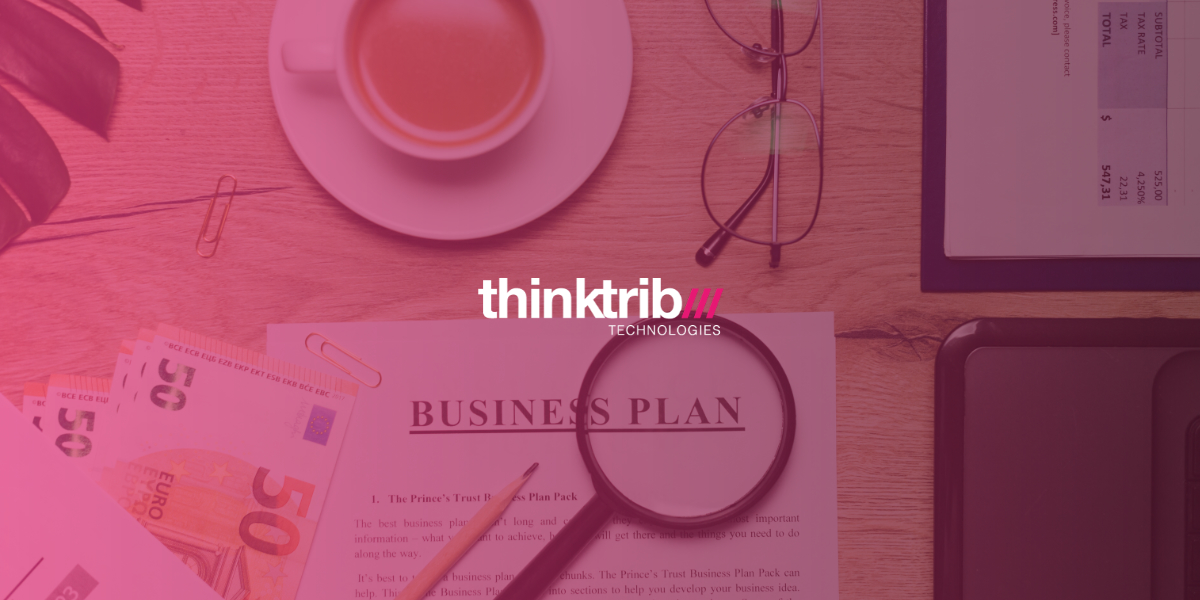A tough economic climate coupled with increased competition from online stores, means today’s conventional retailers operate under challenging conditions.
Retailers are under pressure to run a lean, streamlined operation that maximises the productivity of frontline staff, while giving them time to offer a first-class customer experience. Customer expectations have never been higher in terms of service, value and choice, so retailers are required to be innovative to ensure they deliver on all of these expectations simultaneously.
These challenges leave little room for inefficient processes that require paper records or manual data entry. Such procedures are high latency, resulting in a disconnect between store employees and office-based staff. Plus, time-inefficient, manual processes expend precious time that could be sent delivering a quality shopping experience to customers, leaving consumers less incentivised to visit a physical store in the first place.
Enterprise Resource Planning (ERP) gives retailers the digital tools they need unlock enhanced operational efficiency, as well as real-time data insights that support a better store experience for customers. In this article, we’ll give a brief introduction to the concept of ERP and explore some of the benefits it can bring to traditional retail environments.
What is Enterprise Resource Planning (ERP)?
Enterprise Resource Planning (ERP) refers to software solutions designed to streamline and enhance various business operations, including accounting, compliance, inventory management, customer service and procurement.
Rather than addressing each of these processes in isolation, ERP systems offer an integrated digital environment. This integration enables the seamless and instantaneous exchange of data across workflows and departments. The impact of ERP includes:
- Eliminating or reducing the need for manual data handling.
- Preventing data duplication.
- Minimizing the occurrence of human errors.
- Facilitating more efficient processes through real-time data transmission.
These improvements result in a more efficient and well-coordinated operation of business activities.
Here at ThinkTribe, we help retailers across the Gulf region leverage leading ERP solutions to gain a competitive edge and scale new heights of operational efficiency. No-one in the region understands the practical applications of ERP in Retail as well as we do, and we love nothing more than helping retailers transform their operations through tailored digital integration.
Game-changing ERP implementation is more attainable than ever, and as a result is growing in popularity among small and medium-sized retailers across the UAE, Saudi Arabia, and the wider MENA region. Here are 4 compelling benefits retail ERP could bring to your business.
Live Inventory Management
The fast-moving, variable nature of product demand can make managing a retail inventory a challenging undertaking. Your stock levels are intrinsically linked to your profits: too much inventory, and you run the risk of excessive waste, too little and you miss out on sales opportunities. Effective inventory management means striking that perfect balance, ensuring customers enjoy unrestricted product choice, whilst avoiding wasteful stock management practices.
The real-time nature of ERP means you’re able to take swift, data-driven action to replenish stocks that are close to depletion, ensuring your full product range is fully represented on your shop floor. ERP systems monitor your entire inventory, and point-of-sale integration ensures that stock changes are immediately updated, allowing you to plan ahead and avoid running low on your best sellers.
ERP can also be configured to track expiration dates. Alerts are triggered when products approach theses dates so that measures can be taken to avoid waste and eliminate the possibility of expired products remaining on shelves.
ERP systems can also be calibrated to forecast demand. This is particularly useful in retail environments with a high proportion of fast-moving consumer goods (FMCG), as it allows contingency stock to be ordered in advance of periods of anticipated high demand. Conversely, stock levels can be reduced before low demand periods in the interests of reducing waste.
E-Commerce Integration
Today, an e-commerce store can mean the difference between success and failure in retail, as consumers increasingly want the option of ordering good directly from their homes. Managing an e-commerce store however, can be a logistical challenge without the right digital tools that unite and synchronise all your sales channels and inventories.
Thanks to e-commerce integration, retail ERP synchronises data between your inventory, front-of-house POS system, and your online store. This ensures changes in one system are responsively reflected in the others, enabling data parity across your business, and ensuring that orders placed can be reliably fulfilled with your current stock levels. This cross-platform integration delivers a consistent and reliable customer journey across your sales channels, and reduces the burden of manual stock control processes on frontline staff.
Personalized Customer Journey Driven by Real-time Insights
Today’s largest online retailers hold a wealth of data on their customers. This data is used to deliver a tailored, personalized customer experience based on interactions such as previous purchases, marketing outreach responses and even browsing history. These capabilities give retailers the ability to anticipate customer needs and promote products accordingly, thus, increase the likelihood of a sale.
Retail ERP systems allow businesses of all sizes to extract value from customer data and craft a compelling offer that draws on previous interactions and behavioural trends. Data centralization plays a key role in this, with ERP able to unite data from multiple customer touchpoints, including in-store purchases, online orders, loyalty programs and marketing engagements. By consolidating customer data in this way, businesses are empowered to create comprehensive customer profiles that can be used for targeted sales and marketing outreach, and the delivery of personalized recommendations.
ERP also allows retailers to analyse customer data en-masse, providing insights into shopping habits and the efficacy of advertising campaigns. This data analysis allows businesses to adapt the visitor experience, both in-store and online, to respond to the tendencies and preferences of customers in real-time.
By introducing retail ERP to your business, you develop the digital infrastructure necessary to track, collect and analyse customer data like never before. Achieve a consistent customer experience across all your retail channels, craft tailored offers and messages that resonate with customers on an individual basis, and leverage data to boost sales across your business.
Foster Close Collaboration and Boost Productivity
Traditionally, retail has struggled with data localisation and an over-reliance on manual, paper-based processes. This has tended to result in a disconnect between frontline and office-based staff, with the latter struggling to maintain real-time oversight due to processes that prohibit access to live data on sales and inventory.
Retail ERP systems foster a culture of close collaboration between all departments in a retail business by giving everyone access to a single-source-of-truth data depository. This makes collaboration more seamless and natural, and ensures that everyone involved in a process or project is guided by the same information source. This helps to avoid miscommunications and misunderstandings, resulting in fewer mistakes and less time spent on manual recordkeeping and data communication; activities that provide little value to the business or its customers.
ERP systems also unite all departments and employees with data that’s updated in real-time. This information covers everything from inventory levels and pending orders to customer information and sales data, as well as performance information like store KPIs. This data empowers all staff to make informed decisions quickly, allowing customer enquiries to be answered promptly and decisively, and minimising time lost to manual processes like stock checking.
Conclusion
Retail ERP connects the people, processes and technologies that modern retail businesses rely on to deliver a smooth, consistent and high-quality customer experience. ThinkTribe can help your retail business exploit the benefits offered by leading ERP solutions, including Microsoft Dynamics 365 and LS Retail’s Business management solutions. We’re recognised as leaders in retail ERP consultancy, and ERP Implementation with an extensive and varied track record in developing impactful ERP solutions for retail businesses across the region. Reach out to ThinkTribe today to discover the benefits of ERP implementation, and prepare your retail business for a bright future in our competitive digital age.
ThinkTribe: Dubai and the Middle-East’s Proven ERP Implementation Specialists
Welcome to ThinkTribe, the premier choice for ERP implementation in Dubai and throughout the vibrant Middle-Eastern landscape. As seasoned specialists in system integration and ERP solutions, we excel in fostering profitable and scalable growth for businesses spanning various sectors, leveraging state-of-the-art technology solutions.
Whether you’re eager to harness the power of ERP for your enterprise in Dubai or any other part of the Middle-East, seeking tailored advice to select the ideal solution, or require hands-on support throughout the implementation process, our dedicated team is here to support you at every turn. Reach out to us today, and let’s propel your business towards success together.



